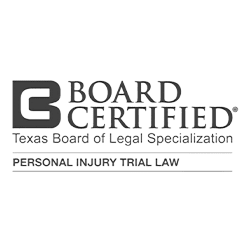When a surgical procedure goes wrong, it can have devastating consequences for a patient. Surgical errors can lead to infection, bleeding, tissue damage, organ damage, and death. This type of medical error is more common than you might expect. It is essential to understand your legal options if you or your loved one has been injured by medical negligence. Our experienced surgical error attorney in San Antonio is committed to holding negligent medical professionals accountable.
What Are Some Common Types of Surgical Errors in San Antonio?
Medical professionals can make mistakes during surgery in several ways. The following are some of the most common surgical errors:
- Wrong-site surgery: As stated in a study published by the National Library of Medicine, an estimated one wrong-site surgery occurs per 100,000 surgical procedures in the U.S. Operating on the wrong body part is a grave error with severe consequences. Wrong-site surgery can occur because of mislabeling patient charts, poor communication among the surgical team, or failure to verify critical information before a procedure.
- Retained surgical items: According to a recent study published in the Journal of Surgical Research, the incidence of unwanted items left inside the patient during surgery and discovered after skin closure is 1/1000 to 1/19,000. Retained surgical items are the second most frequently reported adverse surgical event. It can cause severe infections and internal damage, and may require additional surgery to remove the object.
- Nerve damage: When nerves are accidentally cut or damaged during surgery, it can lead to temporary or permanent loss of sensation, mobility, and function. Nerve damage that affects areas such as the spine, limbs, or face can be particularly devastating.
- Unnecessary surgery: A patient who undergoes surgery that was not required due to misdiagnosis or an error in medical judgment is exposed to unnecessary risks. These risks include potential errors during the unnecessary operation.
- Anesthesia errors: Mistakes made in administering anesthesia before or during surgery can be life-threatening. Anesthesia errors include overdosing, underdosing, and failing to properly monitor a patient’s vital signs. They can cause serious complications, including heart attack, brain damage, and death.
- Infections: Post-surgical infections due to a failure to properly sterilize surgical tools, the surgical site, or the operating room can be fatal if not promptly diagnosed and effectively treated.





















